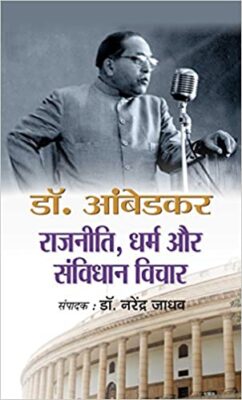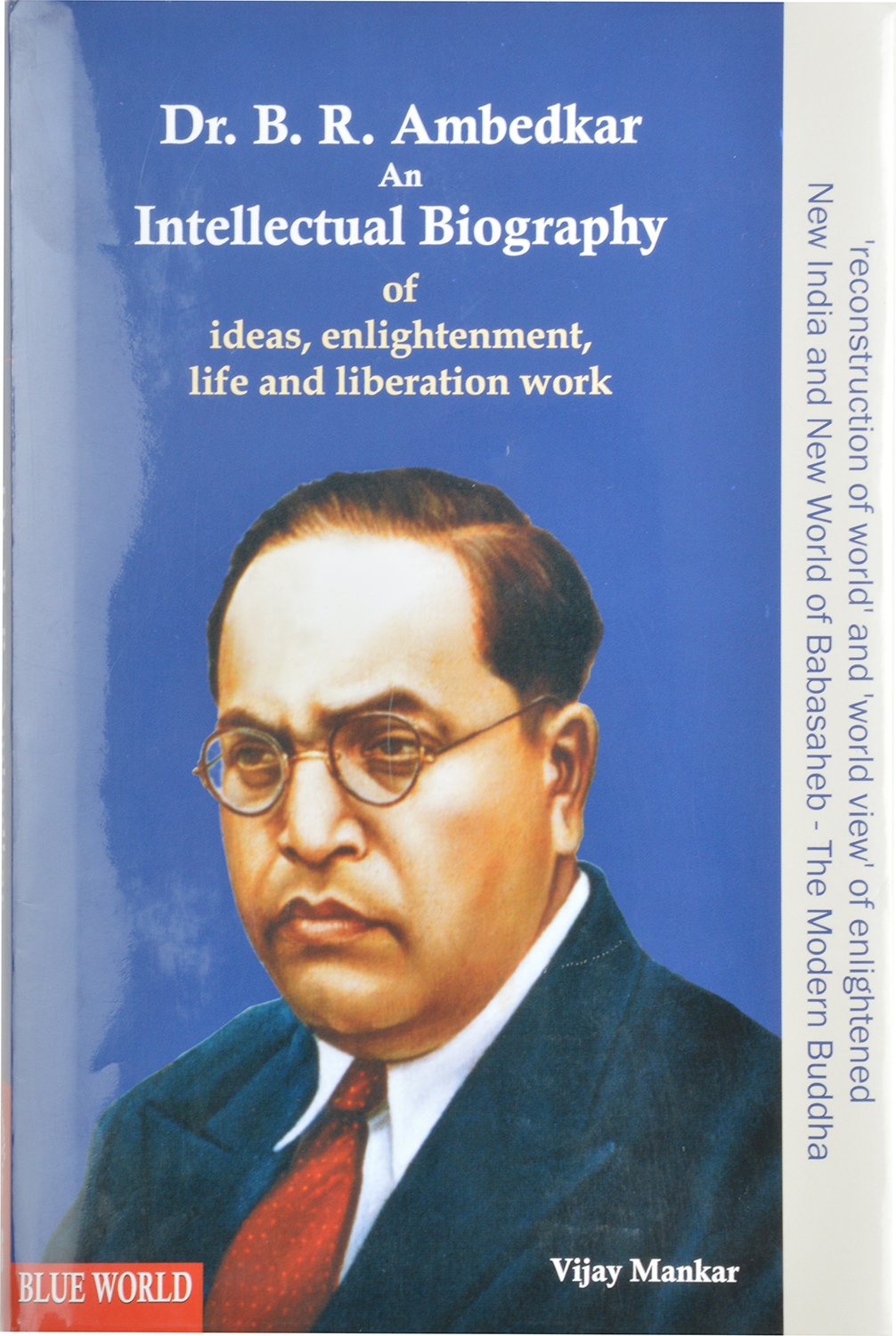Dr B.R.Ambedkar an Intellectual Biography, By Vijay Mankar
“Dr B.R. Ambedkar: An Intellectual Biography” is a book written by Vijay Mankar. It is a comprehensive biography of Dr. B.R. Ambedkar, a social reformer, jurist, and politician who is considered the architect of the Indian Constitution.
The book traces Ambedkar’s life from his early years as a Dalit growing up in rural Maharashtra, through his education and political career, and his contributions to Indian society as a whole. It provides a detailed analysis of Ambedkar’s ideas and thoughts on various social, economic, and political issues, including caste, religion, democracy, and the role of the state in society.
Mankar’s book is based on extensive research and analysis of Ambedkar’s writings, speeches, and other works, as well as interviews with Ambedkar’s associates and contemporaries. The book provides a unique perspective on Ambedkar’s life and legacy, offering insights into his intellectual contributions and the impact of his ideas on Indian society and politics.
The book is a valuable resource for anyone interested in the history and culture of India, as well as those interested in social and political theory, human rights, and constitutional law. It is also a valuable contribution to the ongoing debate on caste, inequality, and social justice in India and beyond.
Description
B.R. Ambedkar, the chief architect of the Indian Constitution and a social reformer, was a firm believer in democracy. His ideas and thoughts on democracy have had a profound impact on the Indian political system and society as a whole. In this essay, we will explore Ambedkar’s thoughts on democracy and its significance in shaping modern India.
Ambedkar believed that democracy was the best form of government because it ensured equal rights and opportunities to all citizens. He argued that democracy could empower the marginalized and oppressed sections of society, such as the Dalits, who were historically denied political representation and social justice. He believed that democracy could help create a just and equitable society by ensuring the rule of law, protecting individual rights and freedoms, and promoting social welfare and economic development.
Ambedkar’s ideas on democracy were rooted in his experience as a social reformer and his struggle against caste discrimination. He believed that democracy was not just a political system but a social and cultural movement that could bring about social transformation. He argued that democracy was not just about elections and voting but about creating a culture of accountability and transparency, where the government is answerable to the people, and citizens have the right to hold their leaders accountable for their actions.
Ambedkar believed that democracy could only work if it was accompanied by social and economic reforms that aimed to empower the marginalized and oppressed sections of society. He believed that democracy could not be limited to the political sphere but had to extend to all aspects of life, including education, healthcare, employment, and social welfare. He argued that democracy could help create a more inclusive and equitable society by addressing the structural inequalities that perpetuated social discrimination and economic inequality.
One of Ambedkar’s most significant contributions to Indian democracy was his role in drafting the Indian Constitution. The Constitution, which came into effect on January 26, 1950, is based on the principles of democracy, secularism, and social justice. The Constitution guarantees fundamental rights and freedoms to all citizens, regardless of their caste, religion, gender, or economic status. It also establishes an independent judiciary, a bicameral parliament, and a federal system of government, which ensures that power is shared between the central and state governments.
Ambedkar’s vision of democracy was not limited to India but extended to the global stage. He believed that democracy was a universal value that could help promote peace, prosperity, and social justice around the world. He was a strong advocate of international cooperation and believed that democratic nations had a responsibility to promote human rights and social welfare on a global scale.
Ambedkar’s thoughts on democracy have been influential in shaping modern India. His ideas have inspired generations of political leaders, social activists, and scholars to work towards creating a more just and equitable society. The Indian democracy, with all its flaws, has been successful in creating a stable political system and promoting economic development. However, it still faces many challenges, such as corruption, communalism, and social inequality, which need to be addressed.
In conclusion, Ambedkar’s thoughts on democracy were rooted in his experience as a social reformer and his struggle against caste discrimination. He believed that democracy was not just a political system but a social and cultural movement that could bring about social transformation. His ideas have had a profound impact on Indian democracy, which is based on the principles of secularism, social justice, and the rule of law. Ambedkar’s vision of democracy, which aims to empower the marginalized and oppressed sections of society, remains relevant today, as India and the world continue to grapple with issues of social justice, inequality, and human rights.
Only logged in customers who have purchased this product may leave a review.











Reviews
There are no reviews yet.